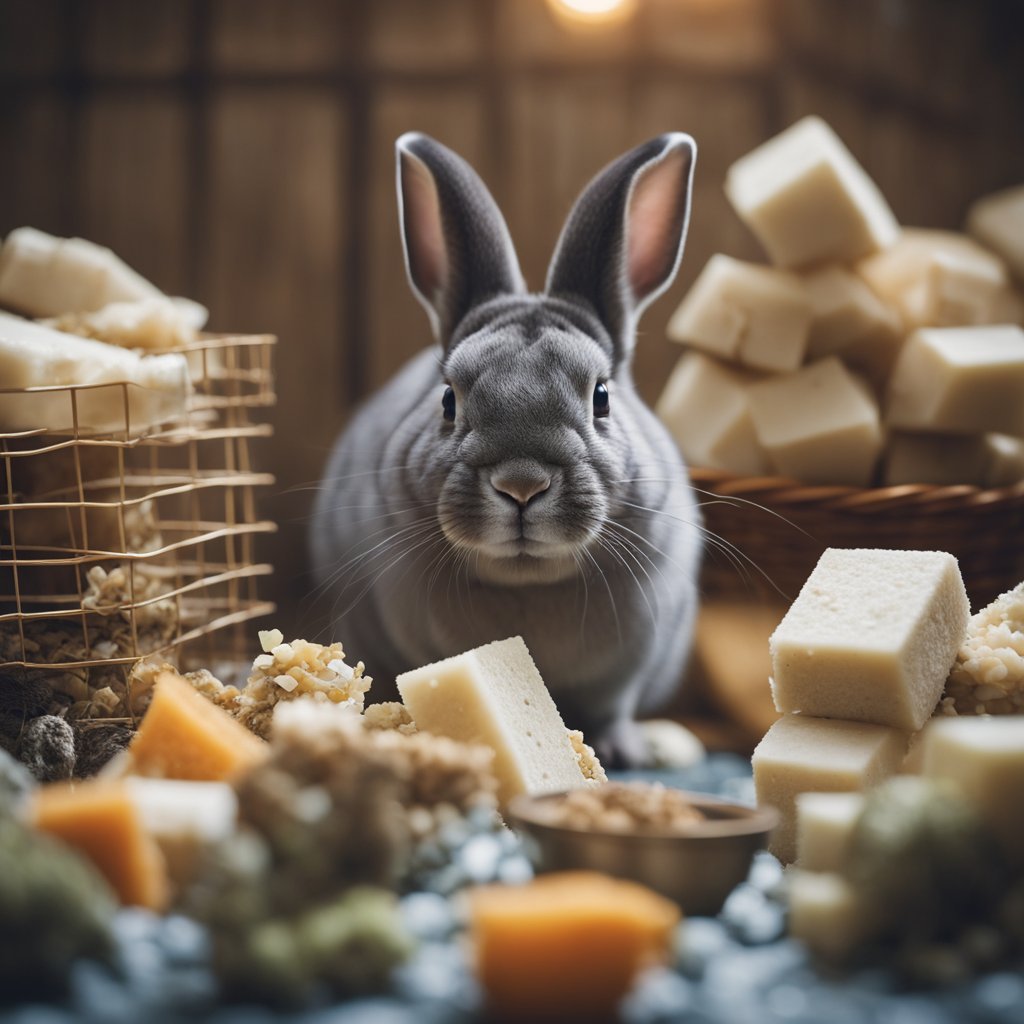Can Rabbits Eat Chinchilla Food? Understanding the Dietary Needs of Small Pets
When considering your rabbit’s diet, you may wonder if chinchilla food is a suitable option. Rabbits should not make chinchilla food a regular part of their diet due to differing nutritional needs. Each type of animal has specific dietary requirements, and feeding them foods designed for another species can lead to health issues.

It’s important to know what your rabbit needs for optimal health. Chinchilla food is typically higher in protein and fat, which can upset your rabbit’s digestive system. Proper nutrition for rabbits includes a fiber-rich diet that supports their digestive health and prevents serious problems.
By understanding the unique dietary needs of rabbits, you can ensure their well-being. Making informed choices about the food you offer will keep your furry friend healthy and happy.
Key Takeaways
- Rabbits have different dietary requirements than chinchillas.
- A high-fiber diet is essential for your rabbit’s health.
- Choosing the right food helps prevent health issues in rabbits.
Evaluating Chinchilla Food for Rabbits

When considering chinchilla food for rabbits, it’s essential to analyze the nutritional differences and the potential risks involved. Understanding these points will help you make informed decisions about your rabbit’s diet.
Nutritional Differences
Rabbits and chinchillas have different dietary needs. Chinchilla food typically has a protein content of 16-20%. In contrast, rabbits require 14-18% protein. The fiber content is also crucial; rabbits need 18-22% fiber to aid digestion, while chinchillas usually have 15-23%.
Key Components of Rabbit Nutrition:
- Fiber: Essential for digestion, helping prevent gastrointestinal issues.
- Fat: Should be less than 3% in rabbit diets to avoid health problems.
- Calcium: Less than 1% is ideal for rabbits to prevent urinary issues.
Chinchilla food often doesn’t provide the right balance of these nutrients, making it unsuitable as a primary diet for rabbits.
Risk Factors for Rabbits
Feeding chinchilla food can pose several risks to your rabbit’s health. One concern is the higher protein content, which can strain a rabbit’s kidneys over time. Additionally, chinchilla food may have inadequate fiber levels, leading to digestive problems.
Potential Risks Include:
- Obesity: If the fat content is higher than recommended, it can lead to weight gain.
- Digestive Disturbances: An improper balance of nutrients can upset your rabbit’s stomach.
- Nutritional Deficiencies: Relying on chinchilla food can cause a lack of essential nutrients your rabbit needs.
It’s best to stick to food specifically formulated for rabbits to ensure their health and well-being.
Safe Dietary Practices for Rabbits

Providing your rabbit with a safe and healthy diet is crucial for their well-being. Knowing what foods are appropriate helps you maintain their health and happiness.
Recommended Foods for Rabbits
Your rabbit’s diet should primarily consist of hay, which is vital for their digestive health. Offer unlimited amounts of high-quality grass hay, like timothy or meadow hay.
In addition to hay, you can provide fresh leafy greens. Good choices include romaine lettuce, cilantro, and dandelion greens. Aim for 1-2 cups of vegetables daily based on your rabbit’s size.
A limited amount of pellets can also be included. Look for pellets that are high in fiber and low in protein. A typical serving size is about 1/4 cup daily for an average-sized rabbit.
Alternatives to Chinchilla Food
If you’re tempted to use chinchilla food, it’s better to explore proper alternatives. Chinchilla food is not formulated for rabbits and may not meet their nutritional needs.
Instead, consider feeding small amounts of fruits as occasional treats. Safe options include apples, strawberries, and bananas. Be sure to offer these in moderation.
Fresh water should always be available. Ensure your rabbit has access to clean, fresh water every day. Keeping their environment healthy contributes to their overall well-being.
Resources

Understanding what rabbits can eat is important for their health. Here are some helpful resources:
- Nutritional Needs: You can learn about the different dietary requirements for rabbits and chinchillas from Pet Educate.
- Chinchilla Food Composition: Discover what chinchilla food contains and why it differs from rabbit food at Chef’s Resource.
- Alternatives to Chinchilla Food: If you are looking for suitable foods for your rabbit, check out the article on safe options at PetShun.
You should also consider reading about the digestive systems of rabbits. This can help you understand why some foods are not recommended.
For a more detailed comparison, Carrot Chronicles discusses the benefits and risks of various dietary options for rabbits.
Always consult with a vet before making any major changes to your pet’s diet. This ensures that your rabbit stays healthy and happy.
Frequently Asked Questions

You may have questions about the differences in diet between rabbits and chinchillas, as well as the safety of feeding chinchilla food to rabbits. Understanding these details will help you make informed decisions for your pet’s health.
Is rabbit food interchangeable with chinchilla food?
No, rabbit food and chinchilla food are not interchangeable. Rabbits and chinchillas have different dietary needs due to their unique digestive systems. Rabbit food is specifically designed for rabbits and contains the right balance of fiber, fat, and protein.
What foods are unsafe for bunnies to consume?
Certain foods can be harmful to rabbits. You should avoid feeding them chocolate, onions, garlic, and avocado, as these can cause serious health issues. Additionally, some seeds and high-sugar fruits should be limited.
What dietary differences exist between rabbits and chinchillas?
Rabbits require a diet high in fiber, typically from hay, while chinchillas can eat a mix of hay, pellets, and occasional treats. The specific fiber and protein needs differ, making tailored diets crucial for each species.
Can domestic rabbits consume foods formulated for other small rodents?
It’s best to avoid feeding rabbits food formulated for other small rodents. Each animal has its unique nutritional requirements. Foods made for guinea pigs, hamsters, or chinchillas may not provide the necessary nutrients for rabbits.
Are there specific health risks in feeding rabbits chinchilla food?
Feeding rabbits chinchilla food can lead to health problems. The high protein and fat content in chinchilla food can cause obesity and digestive issues in rabbits, harming their health.
What are the nutritional requirements for a rabbit versus a chinchilla?
Rabbits need a diet rich in fiber, with 18-22% fiber content, and lower protein levels of 14-18%. In contrast, chinchillas require 16-20% protein and a higher fat content. These differences underscore the need for specific diets based on the species.

